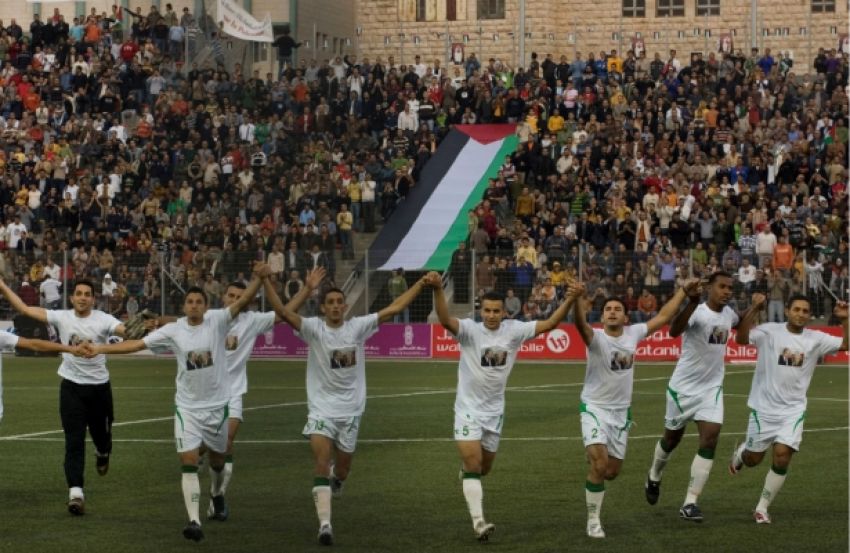
Their names are Jawhar Nasser Jawhar, 19, and Adam Abd al-Raouf Halabiya, 17. They were once soccer players in the West Bank. Now they will never play sports again.
Jawhar and Adam were on their way home from training in the Faisal al-Husseini Stadium on January 31 when Israeli forces fired on them as they approached a checkpoint. After being shot repeatedly, they were mauled by checkpoint dogs and then beaten.
Ten bullets were put into Jawhar’s feet. Adam took one bullet in each foot.
After being transferred from a hospital in Ramallah to King Hussein Medical Center in Amman, they were told soccer would no longer be a part of their futures. (Israel’s border patrol maintains that the two young men were about to throw a bomb.)
This is only the latest instance of the targeting of Palestinian soccer players by Israeli forces. Death, injury or jailing has occurred to several members of the Palestinian national team over the last five years.
Just imagine the international media outrage that would ensue if members of Spain’s top-flight World Cup team had been jailed, shot or killed by another country. Imagine if prospective youth players for Brazil were shot in the feet by another nation’s military.
But, tragically, these events along the checkpoints have received little attention.
Much has been written about the psychological effect this kind of targeting has on the occupied territories. Sports represent escape, joy and community. The Palestinian national soccer team, for a people without a recognised nation, is a source of tremendous pride.
The Palestinian national football team, which formed in 1998, is ranked 144th in the world by the International Federation of Association Football (FIFA). They have never been higher than 115th. As Palestinian Football Association chairperson Jibril al-Rajoub said, its problems are rooted in “the occupation’s insistence on destroying Palestinian sport”.
Over the past year, in response to this systematic targeting of Palestinian soccer, al-Rajoub has tried to assemble forces to “demand the expulsion of Israel from FIFA and the International Olympic Committee”.
Al-Rajoub claims the support of Jordan, Qatar, Iran, Oman, Algiers and Tunisia in favour of this move, and says more countries will back the demand. He has also pledged to make the resolution formal when all FIFA member nations meet in Brazil.
Qatar’s place in this, as host of the 2022 World Cup, deserves particular scrutiny. As the first Arab state to host the tournament, it is under fire for the hundreds of deaths of Nepalese building workers.
As these concerns rises, Qatar needs all the support in FIFA it can get. It will be fascinating to watch whether it sees the path to that support as involving confronting or accommodating Israel.
As for FIFA president Sepp Blatter, he clearly recognises there is a problem in the treatment of Palestinian athletes by the Israeli state. Over the past year, he has sought to mediate this issue by convening a committee of Israeli and Palestinian authorities.
The committee was formed to see if an agreement could be reached about easing the checkpoints and restrictions that keep Palestinian athletes from leaving the West Bank and Gaza. Yet al-Rajoub sees no progress.
As he said: “This is the way the Israelis are behaving ... There is no change on the ground. We are a full FIFA member and have the same rights as all other members.”
The shooting of Jawhar and Adam has taken a delicate situation and made it an impossible one. Sporting institutions such as FIFA are always wary about drawing lines in the sand when it comes to the conduct of member nations.
But the deliberate targeting of players is seen, even in the corridors of power, as impossible to ignore. As long as Israel subjects Palestinian athletes to detention and violence, their seat at the table of international sports will remain precarious.
[Abridged from The Nation.]